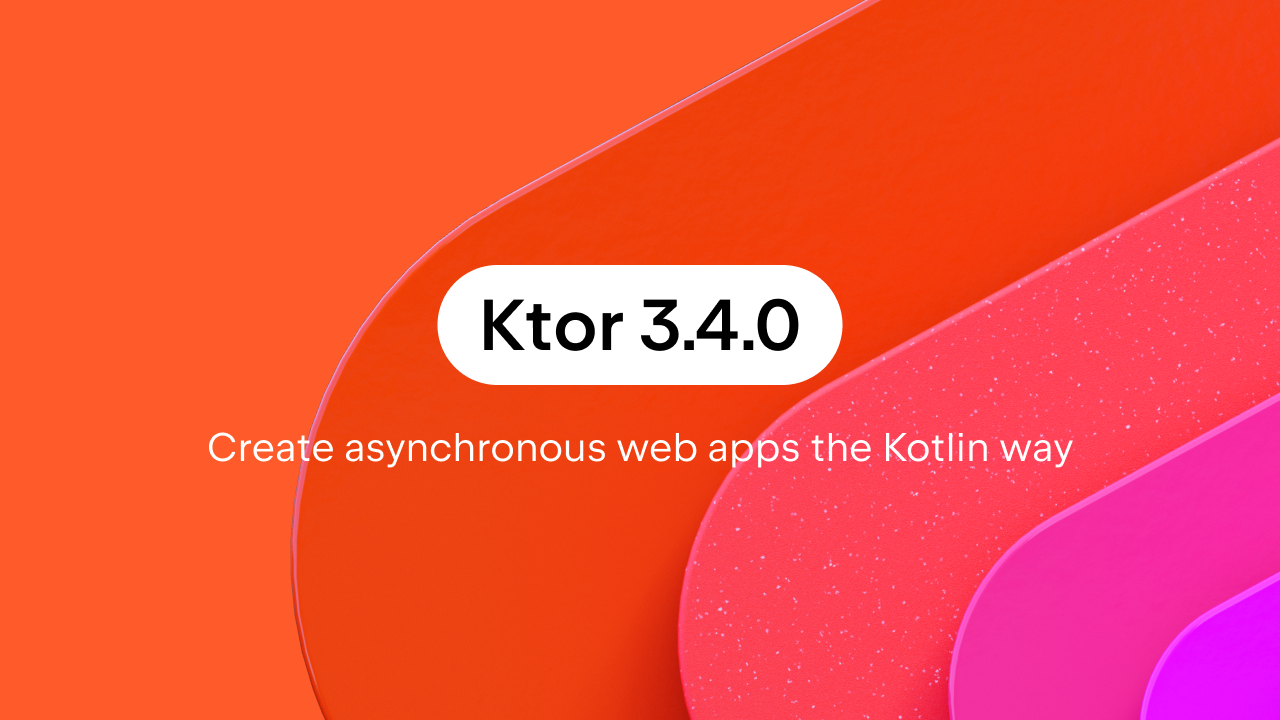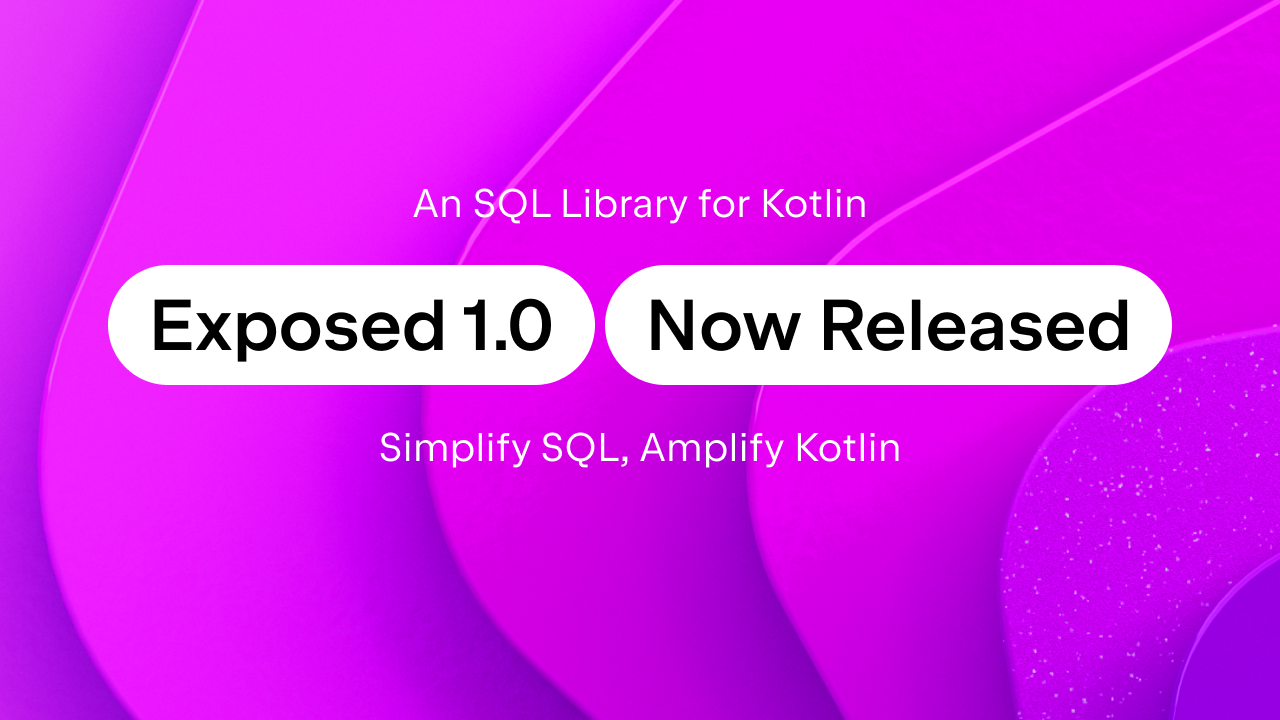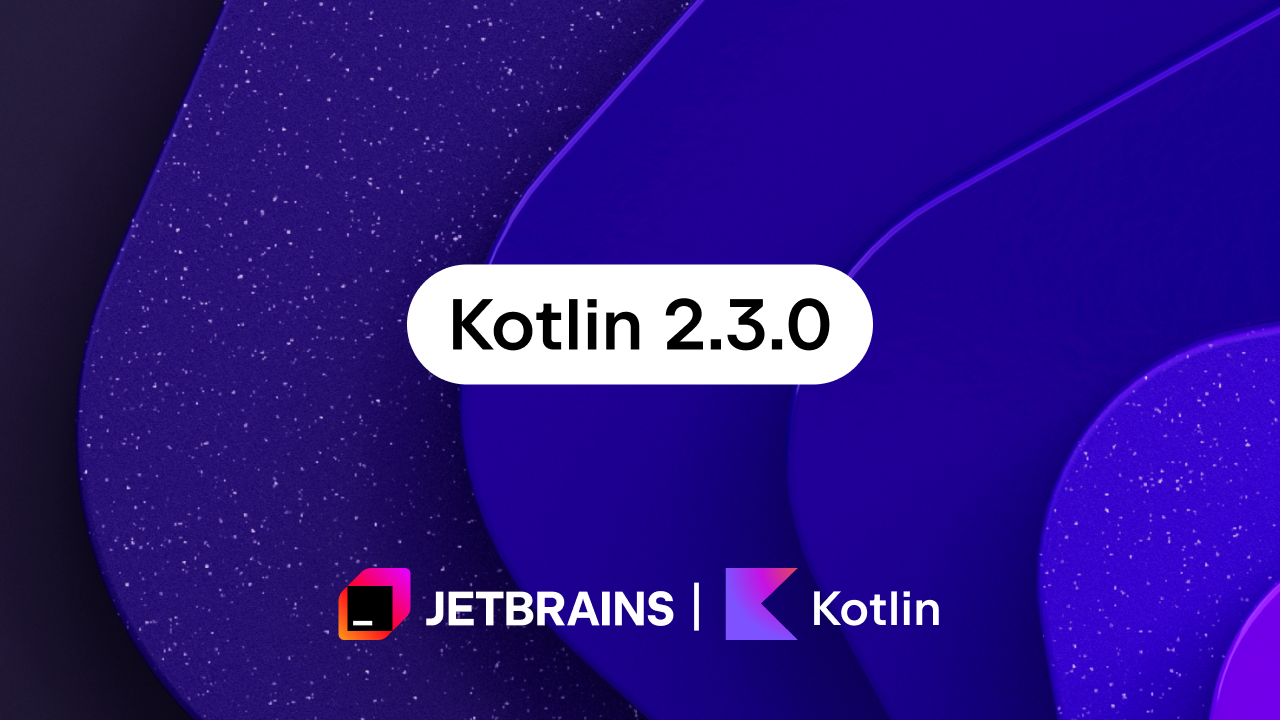Kotlin
A concise multiplatform language developed by JetBrains
Kotlin 1.0 Beta 2 is Out!
The first update to our Beta is here! We are stabilizing, so it’s mostly bug-fixing and changes to the standard library.
Language changes
We are now enforcing single-instantiation inheritance constraint on type parameters: the same T can not have both List<Int> and List<String> as its upper bounds. This has been always forbidden for classes, now the same check applies for type parameters.
Diagnostics were improved for the cases when a smart cast is impossible:
class C {
var x: String? = ""
fun foo(): String {
if (x != null) return x // ERROR: smart cast to String is impossible,
// because 'x' is a member variable
}
}
Also, the compiler is now smart enough to warn us when a value is always null at a particular point:
var x: Foo? = ...
if (x != null) return
x?.bar() // WARNING: bar() will never run, because x is always null here
Library changes
We cleaning up the APIs of the standard library. Most visible changes this time concern ranges. We intended the common use cases such as “if (x in 1..10)” or “for (i in 1..10)” to remain without changes, but did some renaming and hierarchy rearrangements under the hoods:
DoubleandFloatprogressions are droppedByteandShortprogressions are deprecated, the..operator for bytes and shorts now returnsIntRangeRange<T>renamed toClosedRange<T>and itsendproperty renamed toendInclusiveProgression<T>is deprecated in favor of concrete progression implementations instead:IntProgression,LongProrgession,CharProgressionstartandendproperties in progressions are renamed tofirstandlast
Then, utility extensions for strings were generalized to work with CharSequence where possible.
The filterIsInstance extension now requires an explicit specification of its type parameter:
foo(list.filterIsInstance()) // error: what is the type the checks are done for?! foo(list.filterIsInstance<Bar>()) // OK: we are checking for Bar
NOTE: To reduce the size of the runtime library (which is especially important for Android applications), we removed the kotlin.dom and kotlin.browser packages from the standard library. They are now available as a separate library, kotlinx.dom. If you’re using any of these packages in your project, please add the new library as a dependency and update the import statements in your code (change kotlin.dom and kotlin.browser to kotlinx.dom and kotlinx.browser). Otherwise, the API of the library has not changed.
Other changes:
- Added
- in-place reversing and sorting for
MutableLists andArrays naturalOrderandreverseOrdercomparatorsmapNotNull,mapIndexedNotNull,filterIndexedString.toByte()
- in-place reversing and sorting for
- Deprecated (run Code Cleanup to migrate your code)
Function.toGeneratortoLinkedList
- Dropped
join,mergeDelegates.lazyFileTreeWalk.filter,File.recurse,BufferedReader.linesandlineIteratorassert,checkandrequirewith non-lazy message argument
Dokka
Dokka, the new documentation generation tool for Kotlin projects, has finally reached a full release. Dokka supports mixed-language projects and understands KDoc comments in Kotlin code and JavaDoc comments in Java code. Dokka has plugins for Gradle, Maven and Ant, so you can easily integrate it with the build system of your project. Download Dokka and find more information on the Dokka project site.
IDE changes
- Completion now works for Java static members and members of objects. Just press
Ctrl+Spacefor the second time:

-
Completion inside string templates has been added. For using it type
"$name."

-
Now we can choose exact position of a breakpoint while debugging expressions with lambdas:

-
And finally, a bunch of intention actions have been added for importing Java statics, object members and enum entries. And there is an analogous one to
*-import

Installation
IntelliJ IDEA 15 and Android Studio will suggest you to update Kotlin automatically. If this does not happen, you can do it manually through Plugin Manager.
Subscribe to Kotlin Blog updates







